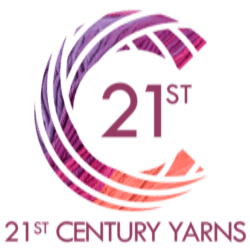Goyal calls for PPP in Govt funded technical Textile R&D
The Government will extend Production Linked Initiatives (PLIs) scheme for Textile Sector in States supporting development and offering affordable infrastructure for Textile Manufacturing like cheap land and power, Textile Minister Piyush Goyal has told industry stakeholders.
Goyal has also set a target to increase exports of Technical Textiles five times from US$2 billion to US$10 billion in 3 years,
“We should align with best standards in Textile manufacturing. There should be no difference in quality of textile meant for international and domestic consumers,” he told representatives of Indian Technical Textile Association (ITTA) in Delhi on 5 Nov 2021.
The Minister suggested public private participation in Government-funded Research & Development in Technical Textiles.
Growth of Technical Textiles in India has gained momentum in past five years, currently growing at 8% per annum. “Our aim is to hasten this growth to 15-20% range during next 5 years,” he said.
The current technical textile global market is estimated at US$250 billion. India is an aspiring player with US$40 billion size of this market. The biggest players are the USA, Western Europe, China and Japan with market share averaging between 20% to 40%.
“In addition to the growth in statistical terms, we will direct the growth towards high technology and indigenously innovated products,” Goyal assured the industry stakeholders.
With these objectives in mind, the Government has launched National Technical Textiles Mission in February 2020, with a view to make India a self reliant, vibrant, export-oriented economy in the world.
“Our aim is to transform India into a major player in innovations, technology development, applications in key areas (agriculture, roads and railways, water resources, hygiene and healthcare, personal protection) with emphasis on higher education and skilled workforce,” he said.
Goyal also informed the industry representatives that 207 HSN Codes were issued for Technical Textile in January 2019, a first time for in India which has become a net exporter in Technical Textiles in less than two years.
The Minister pointed out that 92 items have been made mandatory for use by Government organizations covering agriculture, horticulture, highways, railways, water resources and medical applications by nine Ministries.
Technical Textiles are engineered to give desired output suitable for specific applications. The basic raw material are natural fibres like jute, silk and cotton. But, majority of the applications use man-made fibres such as polymers (Aramid, Nylon), carbon, glass and metals.
Technical Textiles are the technology of future. “This is going to be the next technological revolution entirely changing the way we live and think,” he added.
Based on their area of Applications, Technical Textiles segment is divided into 12 sub-segments. It is widely used in Packaging Textiles (Packtech – 38%), Geotechnical Textiles (Geo-tech – 10%), Agricultural Textiles (Agrotech – 12%).
The Applications of Technical Textiles are increasing daily.
Along with new inventions made in smart textiles, 3-D weaving, smart wear for health monitoring and ultra-high performing sportswear are bringing in new avenues which were unthinkable a few years back.
Research Projects have been awarded to reputed institutes like IITs. The topics cover cutting edge technologies such as, indigenous carbon fibre, electric vehicle body from carbon composites, ultra strength bullet proof jacket material, fog harvesting through use of technical textiles, ultra protection for bio organisms etc.
The Committee on Research, Innovation and Development in Technical Textiles, co-chaired by Principal Scientific Adviser, Member (S&T – NITI Aayog), has so far recommended 20 proposals out of 36 under consideration.
Nearly 40 more research proposals are being discussed in the subsequent meetings of the Committee, according to a release by the Ministry of Textiles.
ITTA is an association of small and medium segment of technical textiles manufactures. Ninety per cent of their members have annual turnover below Rs.100 crore. ITTA members are mostly engaged in non-woven fabrics, protective garments, packaging technical textiles, agro-textiles, industrial filters and conveyer belts among others.
Large technical textiles manufactures, with more than Rs.500 crore turnover, are Garware, Welspun, SRF, Century Yarns, Johnson & Johnson among others. These manufacturers are not associated with ITTA. Ministry of Textiles consults ITTA in most of its policy formulations, programmes and engages them in a regular manner, said the release. #investment #manufacturing #technology #exports #economy /fiinews.com









